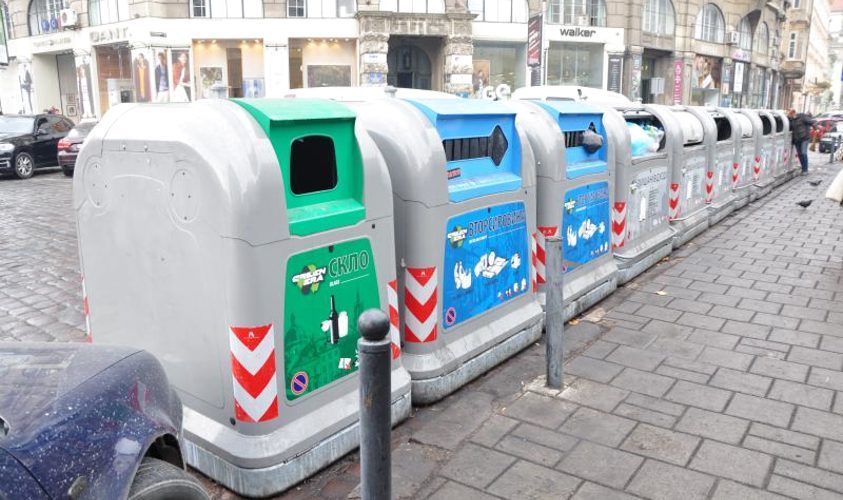The U-LEAD with Europe program continues to provide consulting and methodological support to the territorial communities of Lviv region. Recently, representatives of the communities of Lviv and Zakarpattia regions took part in an information session on “Management of solid waste in communities hosting internally displaced persons.”
The event was organized by the team of the regional office “U-LEAD with Europe” in Lviv region. Dmytro Laznenko, U-LEAD with Europe waste management expert, worked with local communities.
According to Halyna Khrushchak, head of the U-LEAD regional office in Lviv Oblast, Zakarpattia and Lviv Oblast received the largest number of internally displaced persons. Communities have provided them with comfortable living conditions, engagements and other priority needs. As a result, local communities have faced new challenges, one of which is the increase in solid waste management.
“Before the war, territorial communities had their own solid waste management systems. In the current environment, they should be reviewed and take into account transportation, collection, provider services and other issues, taking into account all the nuances. It is very common for communities to have low tariffs and a significant number of people not covered by contracts and paid for services. There are also problems with existing landfills, which do not always meet all standards, “said Dmytro Laznenko.
Many communities have faced declining revenues from solid waste removal as much of the population has left and solvency is declining. The increase in the number of internally displaced persons has provoked disruptions in the work of utilities, which are unable to respond quickly to new challenges.
“Communities need to think about refining their consumer base to understand the new need. Installation of new containers, adjustment of routes and frequency of solid waste removal can significantly alleviate the situation. Information work with internally displaced persons will be important, as they should know about the places of collection of solid waste, the method of collection or the frequency of removal, ”the expert advises.
Emphasis was placed on the need to develop waste management plans in local communities, local solid waste management programs and the development of projects that can be submitted to technical support programs.
Dmytro Laznenko reminded the communities about the possibility of cooperation in the direction of solid waste management. As many local communities have similar problems and geographical proximity, they can enter into cooperation agreements and respond jointly to new challenges.
The U-LEAD with Europe Program for Local Empowerment, Accountability and Development is co-funded by the EU and its Member States Germany, Poland, Sweden, Denmark, Estonia and Slovenia to support Ukraine in its efforts to strengthen local municipality. U-LEAD promotes transparent, accountable and multilevel governance in Ukraine that meets the needs of citizens and empowers communities.

